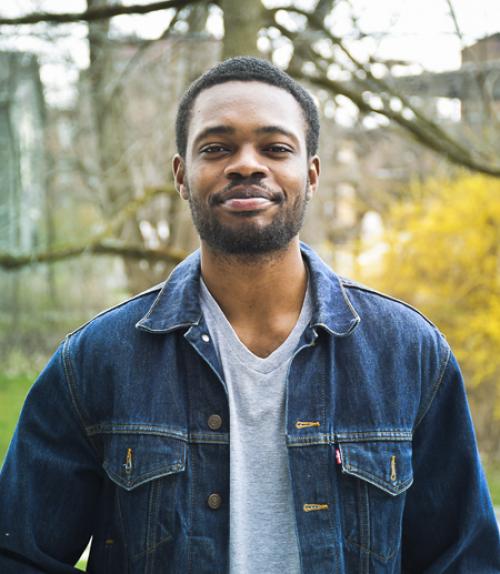Joseph Outa
Biology & Society
Nairobi, Kenya
What are the most valuable skills you gained from your Arts & Sciences education?
My philosophy of science classes have greatly impacted how I think. So have the random electives I've taken in my journey: an art history class showed me how to essentially read paintings, tai chi and meditation classes gave me ways to rebalance myself and philosophy classes taught me to read and think critically. Coming in as a freshman, I had a narrow set of reference experiences. Years later, I’ve taken so many classes in so many different disciplines. Not only am I well versed in various academic ideas, I can also teach myself anything I would ever want to know. When I went for office hours, I didn’t just learn the answers, I was shown how to ask the right questions. The most valuable skill I’ve gained is learning how to learn; how to recognize opportunity. Cornell provided me with a nourished environment that showed me the realm of what I can ask and expect of the world. I am eternally grateful for that.
What was your favorite class and why?
Introduction to Behavior is the best class out there, hands down. Each module was taught by a different professor, each one specialized in the module they taught. The best thing about the class, though, was the subject matter. It was an examination of human and animal behavior from the micro level all the way up to the macro scale; from a systemic as well as a mechanical perspective. The ideas themselves were very interesting. We discussed the different causes and consequences of behavioral variation, the popular nature/nurture debates, and general interesting ideas about animals such as animal communication and kinship systems such as monogamy and polygyny. It’s an excellent introduction to animal behavior. I owe a lot to Shelby Dietz and her team; Prof. Raguso, Prof. Webster, Prof. Walcott, Prof. Reeve and Prof. Sheehan are all modern day rockstars.
What Cornell memory do you treasure the most?
The routine activities I do on a daily basis are the most important but also paradoxically the least memorable. My most treasured memories consist of spontaneous activities with friends that I don’t typically do–climbing the 161 steps of the clock tower (after two years mustering the willpower) and being surprised by the beautiful scenery; accompanying a friend to an orchestra performance; wandering around the Ithaca Commons during the ice festival; stumbling into the pristine Sage Chapel. We tend to take life seriously, but it’s the simple and rare moments that stick with us.
What have you accomplished as a Cornell student that you are most proud of, either inside the classroom or otherwise?
When choosing my major, I ran the gamut from biology to philosophy to psychology and finally to biology and society, focusing on behavioral science. When I joined Cornell, I was relatively unskilled, not confident and filled with the imposter syndrome. I had flown thousands of miles from home just to get a better education. I was in a foreign environment and culture. Fast forward to now: I consider Cornell my second home. I have made friends and grown intellectually. Looking back, I’m proud of how I was able to go through the full range of experiences and emotions and emerge stronger. What worked for me was learning to put my skin in the game. I find that feelings of alienation are quickly warded off when you get involved. I joined a cooperative which has provided a genuine sense of community and stable shared values. I involved myself in leadership roles as an admissions ambassador, volunteered to spread the word about sustainability and worked in various behavior labs. The best way to fit in is to give a part of yourself to something.
If you were to offer advice to an incoming first year student, what would you say?
Don’t be afraid to be the stupid person in the room. The master was once a beginner. If you’re interested in something that you’re also incompetent at, put your insufficient self out there. Be willing to go through the motions. Declare your wacky ideas. Try the cool thing that you’re not good at. Do it haphazardly. Write a terrible first draft. The people that make it are those that were willing to look stupid at some point. Because when you’re true to yourself, and you begin to learn, you’re really learning. Also, don’t be in a hurry. Build slow, but build to last.




